Lifestyle

Setting Realistic Goals After Bariatric Surgery

Dr. Samantha Stavola-Giaconia DCN, RDN, LD, FAND March 1st, 2023
Lifestyle
Do you make an attempt every year at goal setting, only to find you fall short? We'll help you learn to set realistic goals during your bariatric journey and why setting goals is so important for your health.

Your Diet After Bariatric Surgery
February 23rd, 2023
Lifestyle
You just had bariatric surgery and are home from the hospital - now what? See our list of healthy eating habits and behaviors post weight loss surgery.

Tips to Reduce Vomiting and Nausea After Bariatric Surgery
February 20th, 2023
Lifestyle
Nausea and vomiting are common side effects of anesthesia and surgery. Read our tips of how to reduce these unpleasant side effects after bariatric surgery.

6 Lifestyle Changes to Make Before Bariatric Surgery
January 15th, 2023
Lifestyle
Are you in the process of qualifying, or have you already qualified for bariatric surgery? At either of these points, your surgeon may give you lifestyle guidelines to implement before surgery.

Dumping Syndrome after Surgery - Symptoms & Prevention - Celebrate
November 30th, 2022
Lifestyle
Dumping syndrome most commonly effects gastric bypass and DS surgery patients. So what is dumping syndrome? And what can you do to prevent these severe symptoms. Inside, we break it down.

Essential Exercise After Bariatric Surgery: Tips for a Strong Recovery
June 6th, 2022
Lifestyle
It's well known that exercise, whether or not you've had weight loss surgery, leads to a change in body composition. But did you know there are even more beneficial effects of exercise?

Probiotics After Bariatric Surgery
June 6th, 2022
Lifestyle
Probiotics are specific strains of bacteria that are healthy and important for our bodies. This good bacteria plays a vital role in human health. Learn what in particular makes probiotics beneficial after bariatric surgery.

Bariatric Diet After Surgery: Post Op Eating Tips
February 1st, 2022
Lifestyle
You have been prepping for the big day for months-maybe even years. Now that you bariatric surgery has occurred, it's time to begin your post-op diet and the rest of your life!

Adolescent Bariatric Surgery
January 17th, 2022
Lifestyle
80% of adolescents aged 10 to 14 years will remain obese into their adult years. Similar to treating obesity in adults, there are many different treatment options for adolescents, including bariatric surgery.

Who Qualifies for Bariatric Surgery?
January 1st, 2022
Lifestyle
When considering bariatric surgery, one may wonder if they meet the requirements. There are several different things to consider when it comes to undergoing a bariatric procedure. And remember, having surgery isn’t the "easy way out." While having a bariatric procedure is the most helpful tool to lose weight, it is still just a tool. Every successful patient still puts in the effort to eat right, exercise, follow up with their surgeon, take their vitamins, and attend support groups to maintain weight loss. Clinical guidelines are updated every few years to keep clinicians up to date on the best bariatric practices. Included is an explanation regarding who is a candidate for bariatric surgery. If an insurance has bariatric coverage, they develop their own criteria on what must be met to receive coverage. Your physician's office will most likely be able to give you details on your personal insurance, but it is always helpful to call and get the criteria yourself. That said, patients...

How to Use Protein Supplements Long Term After Bariatric Weight Loss Surgery
December 15th, 2021
Lifestyle
In the initial phases of bariatric surgery post-operative care, protein shakes are commonly used to help patients reach their protein goals. As time goes on and patients can eat more solid foods, the use of protein shakes tends to decrease for most. While this is okay, it’s also okay to continue using protein shakes daily to hit your protein goals. How can you best use protein supplements on a long-term basis after you have completed your bariatric weight-loss surgery? Why is Protein Important Long-Term After Bariatric Surgery? Protein is important long-term to help ensure fullness and satiety, and aids in maintaining fat-free mass (muscle mass) while losing fat mass or maintaining your fat mass loss. One study by Lopes Gomes, et al. found whey protein supplementation helped post-RNYGB patients lose more fat-mass, with no change in fat-free mass, compared to the intervention group that did not supplement with whey protein.1 How Much Protein Do You Need? According to the 2019...

Intermittent Fasting after Bariatric Surgery
December 1st, 2021
Lifestyle
Intermittent fasting (IF) has quickly become one of the world’s most welcomed approaches to weight loss, overall health, and simplifying life. Studies have shown it can have powerful effects on your body and brain, and it may even help you live longer (1,2). Some find following an IF regimen easier than a traditional calorie-restriction approach (3). IF's concept seems to be divisive, so it's important for us to take a closer look at the research and define the good, bad, and unknown, including whether it's a practice that should be recommended to weight loss surgery patients. What is Intermittent Fasting (IF)? IF is defined as an eating pattern that cycles between periods of fasting and eating. Typically, the types of food eaten are not specified; rather, the eating time is specified. Two common intermittent fasting methods are daily 16-hour fasts and fasting for 24 hours, twice per week (3). Fasting for a certain number of hours each day (or eating just one meal a couple days a week)...

The Best, highest Quality Protein Powders for Shakes
November 15th, 2021
Lifestyle
Protein is essential for a healthy body. It feeds our organs, supports bodily functions, keeps us full, and builds muscle. To consume enough protein, many of us turn to protein supplements. With protein shakes/powders saturating the market, how do we know what to choose? Which brand is best? Which form of protein is best? There's whey protein, soy protein, egg protein, pea protein, and more! Let's look at how to tell what are the highest-quality protein powders from others and make the best choice. The first thing to consider when choosing a protein supplement is what type of protein the product is made from, which can be overwhelming. Whey protein concentrate is one of the most available sources of protein. It contains all nine essential amino acids, which makes it a complete form. Additionally, it breaks down quickly and easily for digestion. Whey protein isolate is considered high quality. It's a purer product, less processed, and is lactose-free, which makes it a better option for more...

What Is a GMP Certified Supplement?
November 1st, 2021
Lifestyle
What is the difference between dietary supplements and pharmaceutical drugs? Both come as pills, capsules, liquids, and more. Both are taken for health purposes. Because both go into our bodies, one would think they would be regulated the same, but this is not so. One significant way they differ is in their regulation by the Federal Drug Administration (FDA). According to the FDA, dietary supplements include products like "vitamins, minerals, amino acids, and herbs or botanicals, as well as other substances that can be used to supplement the diet."1 They can be taken for a number of reasons specific to the dietary ingredient included in the product, but the most common objective is to replace any gaps in nutrition in the diet or to optimize wellness. All dietary supplements should be discussed with your doctor due to the risk of drug-nutrient interactions and potential adverse effects. A healthy dose of caution is warranted with supplements, but that’s not to say there is no...

Vitamin D Deficiency Pre- and Post-Bariatric Surgery
October 15th, 2021
Lifestyle
Pre-Operative Period Vitamin D is integral in maintaining normal calcium levels by aiding in absorption. Individuals who are obese have greater fat mass, so more vitamin D is required to maintain normal concentrations, due to the fact that vitamin D is segregated in adipose cells1. Peterson et al. noted a deficiency rate of 71.4% out of 58 patients studied, with the majority of deficiency presenting in minority races. Melanin concentrations in the skin present as a risk factor for vitamin D deficiency, with increased concentrations providing a greater risk due to the fact that melanin inhibits vitamin D synthesis1. Another study showed 89.7% of patients had 25-OH-D levels below 76.0 nmol/l, 61.2% below 50.0 nmol/l, and 25.4% below 25nmol/l. As BMI increased across the study population, the rate of vitamin D deficiencies also increased2. Post-Operative Period There is evidence that suggests weight loss procedures can cause a negative effect on bone mineral density, accelerate bone loss, and increase...

Dental Problems After Bariatric Surgery: The Impact of Bariatric Surgery on Oral Health
October 1st, 2021
Lifestyle
Any surgery brings risk and potential complications. Bariatric surgery is no different, and complications include but are not limited to dumping syndrome, hernias, ulcers, bowel obstructions, and gallstones. There is a hidden complication that hasn't received much press or even research, yet still exists: dental problems and oral health issues after bariatric surgery. Little is known about oral health concerns post-WLS; first, let's look at the research that has piqued many patients and professionals' interest. What we know: The current literature is quite limited concerning dental manifestations after bariatric surgery. It has been found there is an increase of dental erosion, increased dental caries, and increased dental hypersensitivity post-operatively. Dental erosion is defined as the irreversible loss of dental hard tissues by a chemical process without bacterial involvement. The acid in the foods and drinks we consume as well as gastric acids from vomiting and reflux can lead to...

Thiamin (Vitamin B1) Deficiency Before and After Bariatric Surgery
September 15th, 2021
Lifestyle
Pre-Operative Deficiency Thiamin plays an important role in energy metabolism (through the metabolism of glucose) and cell functioning in the body; it's essential for tissues and organs to function properly. A thiamin deficiency can lead to cardiac and neurological abnormalities1. Thiamin is not stored in large quantities in the body. The half-life of thiamin is only a few weeks, so dietary and supplemental intake is imperative. Food sources that contain thiamin are whole grains, meats and seafood, and fortified foods, such as breads and cereals; for some foods, many patients are not able to obtain them within their financial constraints. In a study by Flancbaum et al, preoperative deficiency rates for thiamin are noted to be 29%, with Hispanic and African American patients having higher prevalence of thiamin deficiency (47.2% and 31%)2. Likewise, another study conducted on over 300 patients in the pre-operative phase for bariatric surgery found forty-seven (15.5%) of the study participants to have...

Essential Guide to Bariatric Calorie Intake for Effective Weight Loss - Celebrate
September 1st, 2021
Lifestyle
Bariatric surgery is a life-saving procedure, from which you will lose weight, reduce your co-morbidities, and look and feel better. But in order to be successful long-term, you will have to change your diet. It sounds easy enough, but is it? Change is difficult, especially for those who have spent much of their lives without a healthy relationship with food. Having goals and a plan in place is essential to managing this change.Roux-en-Y Gastric Bypass (RYGB), Sleeve Gastrectomy (SG), and Biliopancreatic Diversion with Duodenal Switch (BPD/DS) surgeries alter how the stomach handles food, creating restriction, malabsorption, or both, which means you will ingest less calories over time. After surgery, you will be given a post-surgery meal plan, and you will slowly increase your food intake as you progress through the various diet stages. The bariatric diet is a critical nutritional plan for individuals who have undergone bariatric surgery, emphasizing the types of food and caloric intake...
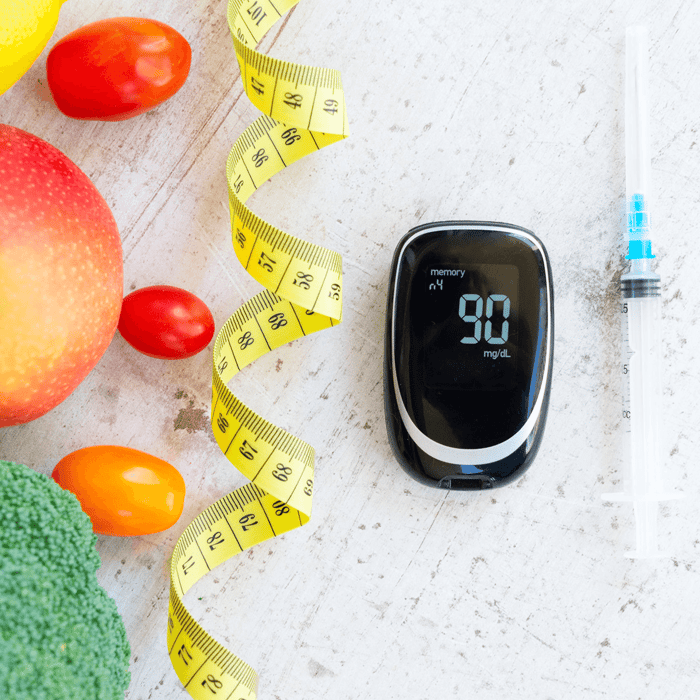
Bariatric Surgery and Diabetes
August 15th, 2021
Lifestyle
Studies have shown being overweight is a major risk factor in developing type 2 diabetes. Roughly 30 percent of overweight people have diabetes, and 85 percent of diabetics are overweight. (1) Looking at these numbers, your first question might be: how do we lower our risk of diabetes? Well, the first strategy is weight loss. This is where bariatric surgery can come into play in the treatment, and even resolution, of type 2 diabetes. How can bariatric surgery resolve, manage, or treat type 2 diabetes? The quick answer would be weight loss. After bariatric surgery, patients lose more weight, faster than with traditional methods. Typically, patients lose about 25% of their weight after bariatric surgery. This weight loss helps us obtain better glucose control and decreases insulin resistance. In addition, when we look at patients with type 2 diabetes, 87% achieve at least better glucose control and need fewer antidiabetic medications, and an average of 78% achieve normal glycemic control...

How To Combat Dehydration After Bariatric Surgery
August 1st, 2021
Lifestyle
Why it's Important Our bodies are made of about 50-70% water! At least half of our body weight is water, so it's no wonder our bodies need it to function properly. Proper hydration helps support joint health, rids waste from the body, supports the elasticity in your skin, promotes cardiovascular health, boosts energy, and supports satiety (which can help with weight loss). Overall, when your body is hydrated, you will feel the difference! After bariatric surgery, drinking enough fluid can be challenging, due to decreased stomach size, adverse taste changes, and time constraints (you cannot eat and drink at the same time). This puts patients at a greater risk for dehydration. Dehydration is one of the most impactful complications after bariatric surgery and one of the leading reasons patients visit the emergency department and/or are readmitted within the first three months after surgery.1 A study looking at behaviors before and after Roux-en-Y gastric bypass (RNYGB) and sleeve gastrectomy...

Health Benefits Associated with Weight Loss
July 15th, 2021
Lifestyle
Obesity continues to be a major challenge, nationally and globally. However, the prevalence of obesity in the United States is higher than in any other country1 Obesity brings with it several risk factors, including type II diabetes, cardiovascular disease, obstructive sleep apnea, PCOS, chronic kidney disease, nonalcoholic fatty liver disease (NAFLD), and many more. That said, co-morbid conditions and even the rate of mortality can be decreased with minimal to moderate weight loss. On an even brighter note, with most co-morbid conditions, the greater the weight loss, the greater the improvement! Let's take a moment to look at a few co-morbid conditions and show that even a little bit of weight loss can make improvements. When it comes to everyone's weight loss journey, seeing and celebrating the non-scale victories are just as important. Weight Loss Effects on Type II Diabetes Losing weight can help prevent and improve type II diabetes. Even a modest, 6.7% weight reduction has been shown in...
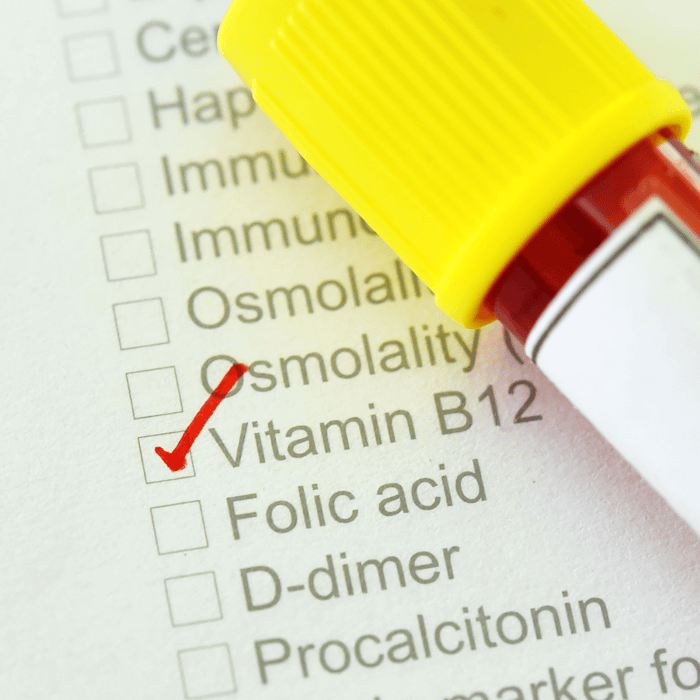
Vitamin B12 Deficiency Before & After Bariatric Surgery
July 1st, 2021
Lifestyle
Why do many bariatric patients need to watch for vitamin B12 deficiency either before or after bariatric surgery? Chances are you already know bariatric patients need higher doses of certain vitamins after surgery. Changes to the digestive system after surgery that limit calories also limit vitamins and minerals from being absorbed. What are these changes, and how common is this issue? For vitamin B-12 specifically, there are a couple factors that contribute to the importance of getting enough from your post-op vitamin regimen. What is Vitamin-B-12 and Its Role B-12 is a water-soluble vitamin naturally found in most animal products, such as meat, dairy, and eggs. It's also found in fortified foods like bread and cereal. B-12 is required for forming red blood cells, neurological health, and DNA synthesis. Deficiency can cause: Megaloblastic anemia Fatigue Neurological issues Numbness Tingling of hands and feet Impaired balance Memory loss Despite most adults getting plenty of B-12 from...
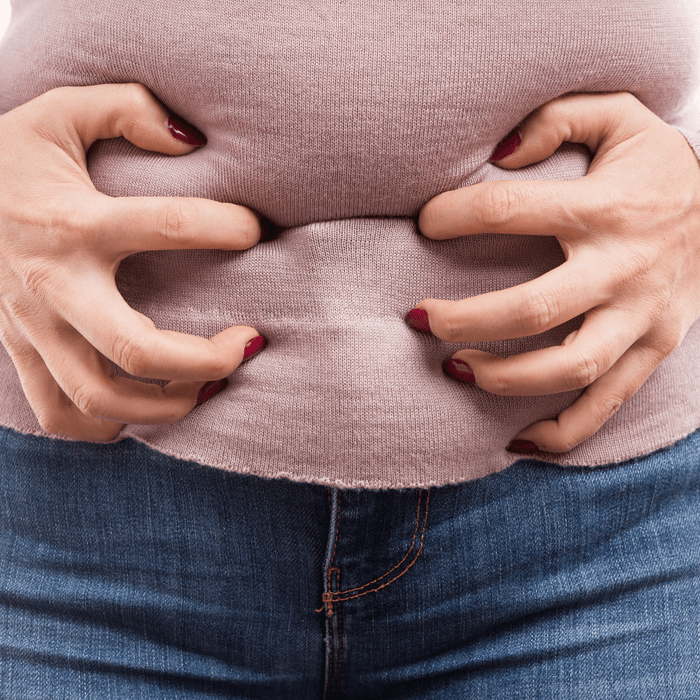
Dumping Syndrome after Bariatric Surgery
June 1st, 2021
Lifestyle
Before and after bariatric surgery, there are possible complications you should be aware of - one of which is dumping syndrome.Symptoms of Dumping SyndromeDumping syndrome can range in symptoms and is most common in patients with gastric bypass. It has been found to occur in 10-75% of gastric bypass patients, as well as in 33% of gastric sleeve patients2. The cause of dumping syndrome tends to be a self-inflicted complication. When high-sugar foods are consumed, they tend to bypass the stomach undigested, which causes a reaction in your small intestines, drawing in water. This fluid shift is what is known to cause the first stage of dumping, also known as early dumping1.Early dumping syndrome typically occurs within the first hour after food consumption. Symptoms of this stage can range from diarrhea, nausea, abdominal cramping, and high heart rate2. It is important to note you may not experience all these symptoms. Just having one of them is typically uncomfortable enough to make one avoid...

All About Fiber: Good Sources of Fiber for a High Fiber Diet
May 15th, 2021
Lifestyle
Since fiber plays a vital role in metabolism, its important to understand the types of fiber, it's characteristics, and where to get good sources of fiber for a high-fiber diet. It helps regulate blood glucose levels, may help lower risk of heart disease, aids in weight management, can suppress hunger, and promotes bowel regularity. The American Heart Association recommends daily fiber intake of 25-30 grams each day. The 2015-2020 Dietary Guidelines recommend 14 grams of fiber per every 1,000 calories consumed. There are two main types of fiber: soluble and insoluble. Types of Fiber Soluble fiber increases the presence of water in bowels and turns to gel during digestion to slow the digestive process, lowering cholesterol levels and increasing absorption of nutrients. Choose this source of fiber if you are experiencing loose stools, alternating diarrhea with constipation, or incomplete stool...

Bariatric Surgery Pre op Diet
May 1st, 2021
Lifestyle
When pursuing bariatric surgery, there are many thoughts that can circulate in your head, such as eating after surgery, exercising, and postoperative pain, but one of the biggest concerns is the dreaded pre-op diet. If you were to do a quick internet search on bariatric pre-op diets, you'd see no two are alike. One thing that cannot be stressed enough is that every surgeon and every clinic will have their own pre-op diet. It's important to follow their diet and guidelines, as this is what they have found to be best for their patients. Length of Pre-Op Diet Pre-op diets can range from a few days of a clear liquid diet, full liquids for a few weeks, participating in a program that requires several months of nutrition visits with weight checks, to even following a VLCD (800 calories a day or less). Even though each diet looks different, one of the main purposes of each diet is to reduce the size of your liver. Having an enlarged and fatty liver has been shown to complicate bariatric...
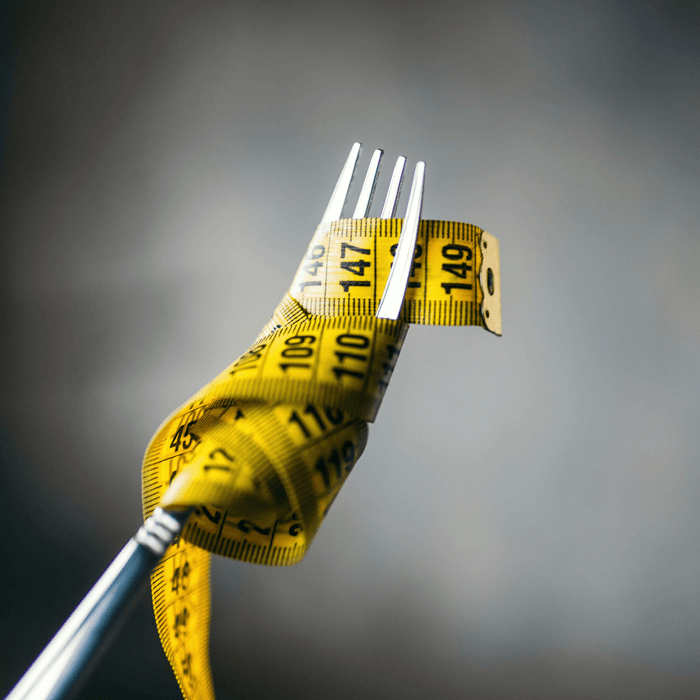
Eating Disorders After Bariatric Surgery
April 1st, 2021
Lifestyle
Bariatric surgery does not treat food addiction. This statement might be a revelation to some, but it's also the title of a book by Dr. Connie Stapleton, Ph.D. According to Dr. Stapleton, "Food addiction is often undiagnosed and can sabotage even the best efforts to lose weight and keep it off. Food addiction is a disease separate from the disease of obesity. If food addiction is present and untreated, it will overtake efforts to treat the obesity, resulting in ongoing medical comorbidities, hopelessness, and frustration."1 Like food addiction, other eating disorders can be common among bariatric patients. A study that assessed rates of eating disorders among those with a BMI less than 40 found that although women are as much as 3 times more likely than men to suffer from any eating disorder, men and women were equally likely to experience binge eating.2 Binge Eating Disorder What exactly is binge eating disorder? Beyond eating large quantities of food in a short period of time, clinical binge...
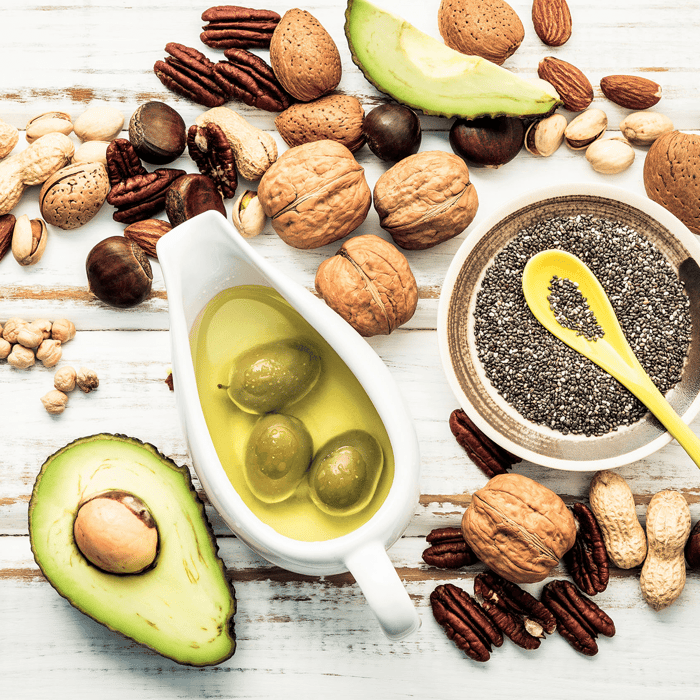
Meeting Protein Goals with Vegetarian Diets
March 15th, 2021
Lifestyle
Protein, protein, protein. Whether you are pre-op, post-op, or somewhere in between, the protein conversation is never-ending. Your protein intake can be met with a variety of foods, but what most commonly comes to mind are animal sources: chicken, beef, pork, fish, etc. However, you can meet your protein goals through a vegetarian diet, if you so choose! A vegetarian diet is one that does not include chicken, fish, beef, or pork but does include other animal byproducts such as cheese and eggs. A vegan diet consists of no animal proteins or animal byproducts. Protein Basics Protein is made up of 20 amino acids, including the 9 essential amino acids. Some of these amino acids are found in lower quantities in vegetarian sources. However, all needs can be met through a diverse vegetarian diet. If you follow a vegetarian diet and only eat beans, you will not get all your essential amino acids. Luckily, most of us don't eat only one food, so this shouldn't be a problem!1 Before we dive into the...

Bariatric Vitamins vs Over The Counter Vitamins
March 1st, 2021
Lifestyle
Over the Counter (OTC) multivitamin mineral supplements became available in the early 1940s, and people have been taking them ever since. They account for almost 16.67% of all purchases of dietary supplements and 40% of all sales of vitamin and mineral supplements. In the United States in 2018, an estimated $124.8 billion was reported from the sale of dietary supplements. This amount included $42.6 billion for all vitamin and mineral-containing supplements, of which $8.5 billion was spent on multivitamins alone. This article will help you better compare bariatric vitamins vs regular vitamins.Multivitamin RegulationOur bodies need vitamins and minerals daily to function properly, and the absence of these can lead to severe health issues and even death. However, there is no standard or regulatory definition for a multivitamin supplement, and there are no standards for specific nutrients it must contain or at what levels. Therefore, the term can refer to products of widely varied compositions...

Hair Loss After Weight Loss Surgery
February 15th, 2021
Lifestyle
Hair loss is one of the most common side effects patients experience after bariatric surgery and is usually experienced between 3-6 months following surgery. One study that looked at post-laparoscopic sleeve gastrectomy patients found that 56% of patients experienced hair loss, 46% female and 10% male.1 There are two stages of hair loss after surgery; one is fairly common, while the other may require assessment for nutritional deficiencies. Hair Shedding This most commonly happens in the early post-operative stage. You may notice hair shedding more when you brush your hair, when you shower, or even when simply running your fingers through your hair. This is normal and is caused by telogen effluvium, a disruption in the normal hair cycle triggered by stress and hormone changes your body experiences from rapid weight loss.2 Hair shedding is less commonly associated with protein malnutrition or vitamin/mineral deficiencies, although one study found that patients with higher zinc and iron...

Post Op Constipation After Bariatric Surgery
February 1st, 2021
Lifestyle
The clinical diagnosis of constipation is when a person has difficult bowel movements or passes less than three bowel movements a week.1 As we discuss constipation further, it is important to remember this: prior to bariatric surgery, you might have had a bowel movement every day, but changes are occurring, and remembering the clinical diagnosis can be helpful to prevent stress about this common side effect. Post Op constipation is a common side effect patients deal with after bariatric surgery. Post-Op constipation can occur in patients who have had any of the four major bariatric surgeries: sleeve gastrectomy, gastric banding, Roux-en-Y gastric bypass, and duodenal switch. The occurrence after bariatric procedures ranges between 7 and 39%. What Causes Constipation Constipation can occur as a result of a number of causes. After surgery, patients consume little solid food and small amounts of fluid; both can cause constipation. Additionally, iron supplementation is needed after surgery,...

Vitamin Patch Efficacy for Bariatric Patients
January 15th, 2021
Lifestyle
Balancing cost, convenience, and quality with a bariatric vitamin regimen is one tricky feat. It seems that to get the most of one, we have to sacrifice another. Appealing to this concern, vitamin patches entered the market with a promise to deliver, but are they really effective? Effectiveness of Patches The bottom line is there is not enough research yet to prove they work. In fact, the limited research available has actually shown that patches lead to more vitamin deficiency. In a small study, the vitamin patch group had more deficiencies than the oral supplement group.1 Despite the small study size, the results raise some concern, with 82.35% in the patch group having at least 1 deficiency compared to 40.74% in the pill group.1 Vitamin D deficiency was seen in 81% of patients in patch group versus 36% in the pill group. Lower serum concentrations of vitamin D, B1, and B12 were seen in the patch group.1 To better understand why the results favor oral supplements, let's take a quick refresher...

Fat-Soluble Vitamins After Bariatric Surgery
January 1st, 2021
Lifestyle
After bariatric surgery, we need vitamins to meet the specific needs of our new GI tracts. This is why it's recommended to take bariatric specific vitamins instead of over-the-counter vitamins. Did you know that not all vitamins are absorbed the same in the body? There are two types of vitamins: water-soluble and fat-soluble. We are going to look specifically at fat-soluble vitamins, why deficiencies occur after bariatric surgery, and what you can do to prevent deficiencies. What are fat-soluble vitamins? Where are they absorbed? Fat-soluble vitamins are vitamins A, D, E, and K. These vitamins are absorbed along with dietary fat and are stored in the body's fat tissues, as opposed to water-soluble vitamins that are absorbed in water, any excess is excreted through urine. Fat-soluble vitamins are absorbed in the duodenum - the first part of the small intestine. To note, the duodenum is also the part of the small intestine that is bypassed in the Roux-en-Y Gastric Bypass (RNYGB) and the...

Pregnancy After Bariatric Surgery
December 15th, 2020
Lifestyle
Fertility After WLS While obesity is a well-known contributor to female infertility, studies have also shown that weight loss "can restore ovulatory cycles, allowing for spontaneous pregnancy" in obese patients with PCOS.1 Bariatric surgery has been proven to improve menstrual regulation and fertility2, but there are nutritional complications one should consider before becoming pregnant after bariatric surgery. We will dive into the different potential complications and how you can navigate through pregnancy safely after bariatric surgery. Potential Complications Malnutrition and vitamin/mineral deficiencies are high-risk nutritional complications that can impact fetal growth. These complications are due to rapid weight loss and inability to eat large portions of food (adequate nutrients) in the first year after bariatric surgery. It's generally recommended to avoid pregnancy for at least 12-24 months after bariatric surgery to avoid these risks.3 Optimal care for women undergoing bariatric...

Alcohol Consumption After Bariatric Surgery
December 1st, 2020
Lifestyle
Before surgery, you may have enjoyed a drink or two after a long day at work or during an evening out with friends. Unfortunately, these habits will have to change after your surgery. So what do you need to know about alcohol consumption after bariatric surgery? There are a few reasons why this change is necessary. The first we will look at is the simplest. If you do drink, you know to never drink on an empty stomach. At the same time, one of the biggest rules after bariatric surgery is that you cannot eat while drinking. This can cause alcohol to be absorbed at an even faster rate. If there is nothing in the stomach to absorb the alcohol, you will feel the effects faster. This post-bariatric surgery guide is here to inform you of the increased effects of alcohol. How Surgery Affects Alcohol Absorption Let's look at the changes to anatomy that occur during surgery and how this affects alcohol sensitivity and absorption. When alcohol enters the stomach of someone with normal gut anatomy,...
Benefits of Food Tracking for Bariatric Patients
November 15th, 2020
Lifestyle
When trying to lose weight, how many times have you been told to track your food from your registered dietitian, health coach, primary care, bariatric surgeon, etc.? Chances are you have heard this repeated, but who has actually taken the time to do it? Few people enjoy food tracking, but it has been proven to be beneficial in short and long-term weight loss when paired with visits with health professionals. How to Track Your Food Tracking your food can be accomplished several ways. You can download a food tracking application on your phone, get a notebook and simply write down the details of your meals, and you can even print a food diary from several different sources. No matter the way you choose to track your food, it will help you be more mindful with your food choices, more aware of the calories in your foods, and even help you detect food allergies/intolerances. Benefits of Food Tracking A study performed in West Virginia encouraged patients to maintain food and exercise logs by pen...
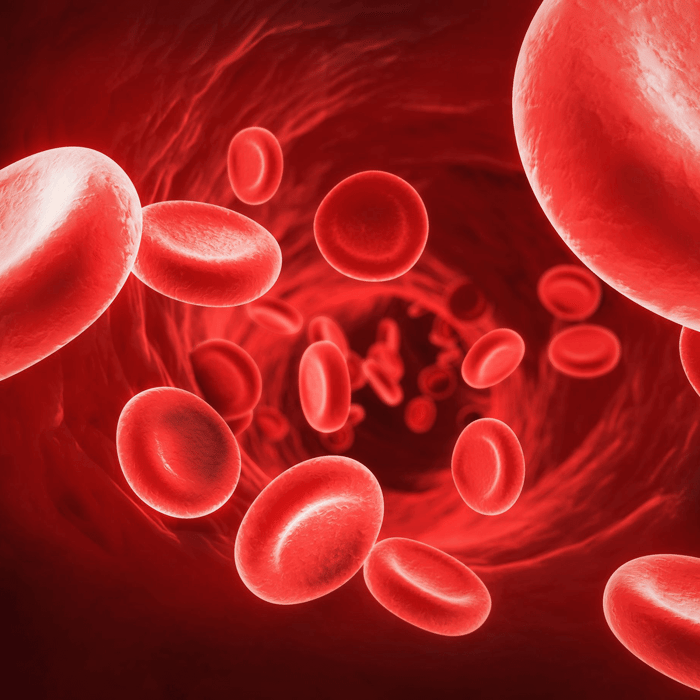
Let's Talk About Iron Deficiency After Bariatric Surgery
October 14th, 2020
Lifestyle
You might workout at the gym and pump iron a few times a week, but your body pumps iron continuously through the bloodstream every day. Iron is needed to make hemoglobin, a part of red blood cells that acts like an Uber driver for carbon dioxide and oxygen. It locates oxygen in the lungs, drives it through the bloodstream, and releases it off in tissues including the skin and muscles. It then picks up the carbon dioxide and drives it back to the lungs where it's exhaled.What is iron deficiency?Iron deficiency after bariatric surgery occurs when the body doesn't absorb enough iron needed to perform daily functions. You might be deficient and not even know because symptoms appear only when iron deficiency has progressed to iron deficiency anemia, a condition in which the body's iron stores are low enough that a sufficient amount of normal red blood cells cannot be made to carry oxygen efficiently throughout the body. Iron deficiency is one of the most common nutritional...

Weight Regain after Bariatric Surgery
October 13th, 2020
Lifestyle
What is it? Weight regain is known as one of the most impacting long-term complications post bariatric surgery, though there is currently no clear definition to what exactly weight regain means. A recent poll from the International Bariatric Club, a group of experts in the field of bariatrics, determined that the two most favorable definitions of weight regain are regaining weight to achieve a BMI above 35", and/or "an increase in weight of above 10 kg (22 lbs.) from the patients lowest post-operative weight", respectively. No matter your definition, if you are a post bariatric surgery patient who is experiencing weight regain there is no denying it is frustrating, and can sometimes lead to feelings of defeat, anger, or even depression. Why does it happen? It is nearly impossible to pinpoint exactly what causes weight regain. Mechanisms behind weight regain stem from lifestyle, mental health, hormonal changes, surgical factors, or combinations of any of the previous mentioned.2 Behavioral...
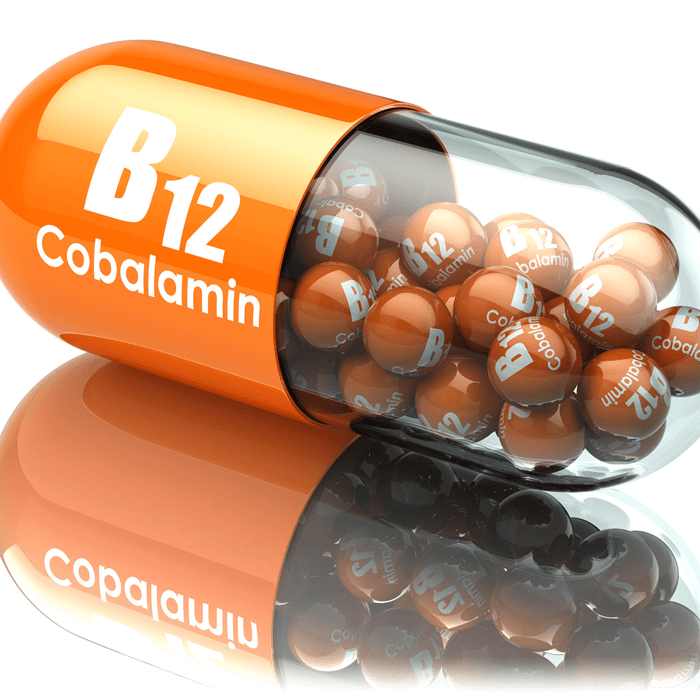
Vitamin B12 Absorption Following Bariatric Surgery
February 5th, 2020
Lifestyle
As Celebrate does with all our bariatric vitamins, we put much thought and consideration into our formulation and are never done looking at ways to improve our products for bariatric patients. We defer to the research and the vast knowledge we gain from working with many of the top-notch bariatric programs across the nation. Some basic information on vitamin B-12 deficiency is outlined below: Pre-op vitamin B12 deficiencies occur in 5-29% of bariatric patients. Post-op vitamin B12 deficiencies occur in 37-70% of bariatric patients. Lab tests for vitamin B12 are not the most reliable. More reliable tests (i.e. homocysteine and methylmalonic acid) are often expensive and not routinely performed by most bariatric programs due to the cost of these tests. Deficiencies of vitamin B12 may not appear for 5+ years after bariatric surgery. Most bariatric patients prefer to simplify their vitamin routine so increasing the vitamin B12 dosage helps reduce the number of supplements most patients have...
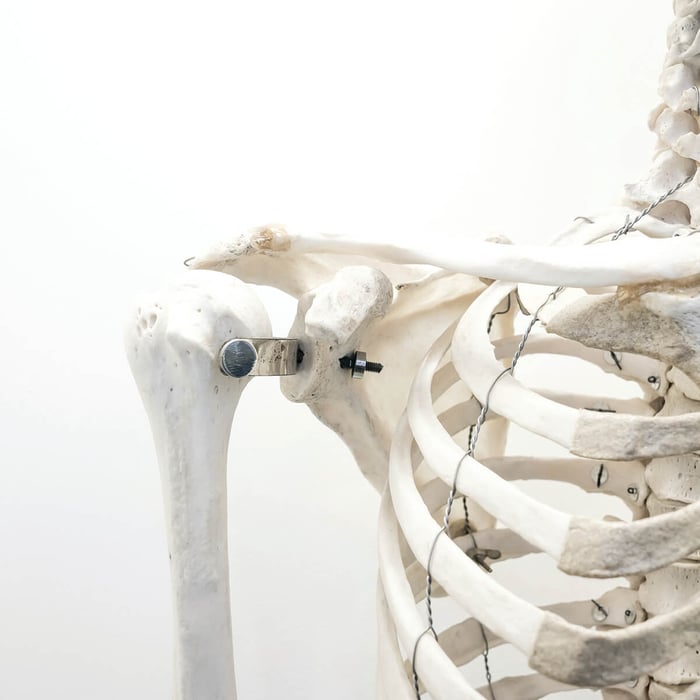
Calcium Deficiency for Bariatric Surgery Patients
February 1st, 2020
Lifestyle
Patients who choose to have bariatric surgery have an increased risk of developing certain vitamin and mineral deficiencies, including calcium. Calcium's Role Calcium is an essential element for human life. It is the most abundant mineral in the human body and 99% of your body's calcium is found in your teeth and bones. The remaining 1% of calcium in the body is found in blood, nerve cells, and body tissue. In addition to the commonly known role calcium plays in healthy teeth and bones, it is also essential for growth, maintenance, and reproduction. It also plays a role in blood clotting, muscle contraction, hormone secretion, and the expansion and contraction of your blood vessels. Not getting enough calcium can contribute to poor bone health and other long-term consequences. It is important to note that the body tightly regulates serum calcium. Serum levels of calcium do not change in regards to dietary intake of calcium. This means the body uses bone as a reservoir for and as a source of...

Food Intolerances - Which Foods to Avoid After Gastric Sleeve or Gastric Bypass Bariatric Surgery
January 30th, 2020
Lifestyle
Many patients report food intolerances, especially during the period of time immediately following surgery once you're allowed to progress to normal eating. Some foods may not sit well and cause an uncomfortable feeling or even discomfort for a while. What should you expect if you're a pre-op or early post-op patient? What are considered normal food intolerances and are there other causes of food intolerances?Common Food IntolerancesA few foods that are commonly not tolerated well after bariatric surgery may include, but are not limited to, pasta, breads, rice, beef, chicken, pork, eggs, stringy vegetables, fruit with membranes, foods with seeds, and cow's milk (or other dairy foods with lactose). However, with this in mind, every patient is different with what they can and cannot tolerate. Also remember that each day may be different. One day you may be able to tolerate a food that you may not be able to tolerate a few days later. Another thing to keep in mind is that some...

Meal Replacements vs Protein Supplements
August 8th, 2019
Lifestyle
Many bariatric (surgical and non-surgical) patients choose protein supplements to achieve their daily recommended protein intake, but what is the difference between a meal replacement and a protein supplement? Is one better than the other, especially for bariatric surgery patients? What is a Meal Replacement? The term "meal replacement" is not defined by the Food and Drug Administration (FDA), but generally refers to a calorie-controlled, pre-packaged product in the form of a bar or a beverage (ready-to-drink or powder) that is used to replace a meal. Meal replacements usually provide around 200-250 calories per serving (although some may be as high as 400 calories per serving) and are fortified with more than 20 vitamins and minerals (at a "good" or "excellent source" level), healthy carbs (including fiber), and healthy fats. The inclusion of fiber, in particular, is thought to decrease the incidence of low blood sugar, low blood pressure, constipation and/or diarrhea. The inclusion of...

Physical Activity & Exercise After Bariatric Surgery
April 30th, 2019
Lifestyle
Physical Activity This article does not intend to initiate the debate of exercise versus physical activity terminology. Some individuals call it exercise, but for the purpose of this article we use the terms physical activity and fitness. It is best to not stress over what we are calling it and rather stress the importance of actually doing it, being successful at it, and enjoying it. The goal is to be more active and increase your fitness level. Maybe you have never participated in physical activity before? Maybe you have physical limitations that make certain types of physical activity difficult, if not impossible. There are several benefits related to being physical active and increasing your fitness level, including, but not limited to, stress relief, better sleep, increased overall energy levels, decreased risk of chronic disease, better overall mood, etc. While all of these changes would be considered beneficial, how does someone get past the feeling of not wanting to be physically...
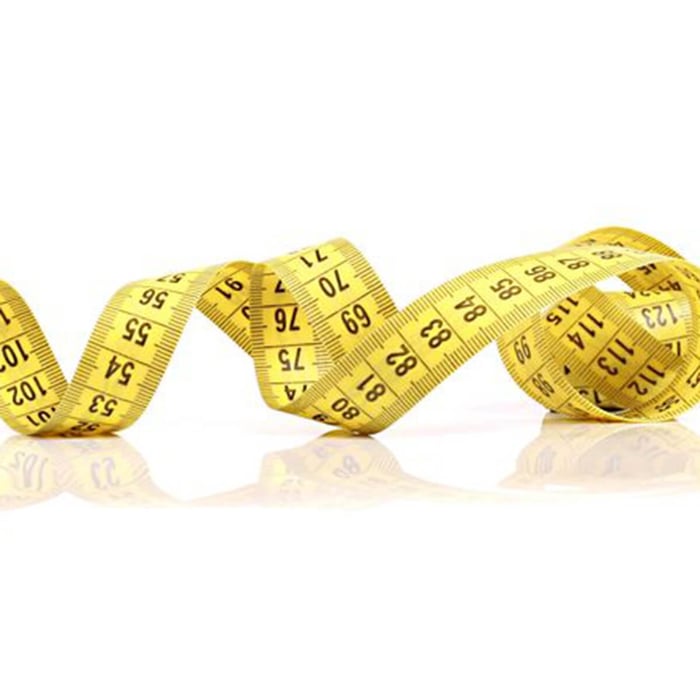
What are Body Mass Index (BMI), Inches & Weight Measurements for Bariatric Surgery Patients?
April 12th, 2019
Lifestyle
What is Important? Is it Just a Bunch of Numbers? As a bariatric surgery patient, you are constantly surrounded by numbers, but what do all of these numbers mean and which ones are important? Below we will review a few common metrics used in bariatric surgery, such as Body Mass Index (BMI), inches, and weight, and discuss their importance. BMI - What is it? What Does it Mean? Body Mass Index (BMI) is a number calculated from an individual's height and weight. BMI provides a reliable indicator of body fatness for most people and is used to screen for weight categories that may lead to health problems and/or conditions. You can calculate your BMI multiple ways. You can use a BMI calculator online like one from the National Institute of Health's website (1). The National Institute of Health also has a Body Mass Index Table you can use to determine you BMI as well (2). To use a BMI table, just find the appropriate height (listed in inches [in]) in the left-hand column labeled height. Move...

Diet Progression After Bariatric Surgery
April 11th, 2019
Lifestyle
Diet Progression After Bariatric Surgery Many patients have heard that there's a diet progression after bariatric surgery (and possibly before). A lot of patients report being nervous about the liquid diet. But why is there a diet progression? Why do you have to follow different diets? Let's take a look at a brief description of the common diet progressions and why they're recommended. This is the one time we readily use the word "diet" as a diet is a short-term change to your eating pattern. The "diet" that is being recommended long-term; we typically prefer to call a healthy eating plan instead of using the word diet. Examples of Diet Progressions The diet progression allows patients to move through different phases, eventually eating solid foods again. The amount of time in each stage may vary according to each surgeon or dietitian's recommendation as well as each individual patient. Be sure to follow the exact recommendations of your program. Pre-Operative Some surgeons have their...

Can You Have Bariatric Multivitamins with Calcium?
April 25th, 2018
Lifestyle
With so many different types of multivitamins out there, it is hard to know what is the best product for you as a bariatric surgery patient and what your body can actually absorb. Unfortunately, not all companies (including many over-the-counter brands and some bariatric vitamin brands) follow the rules of how the body absorbs various nutrients. The multivitamins some of these companies create might include nutrients that cannot be absorbed when taken together or they might include nutrients that need to be provided within a certain ratio for optimal health and in order to prevent deficiencies. Specifically, one of the questions I get asked quite a bit is, "Should my multivitamin contain calcium?" Of course, the answer to this question is not a simple "yes" or "no" and a few questions must be asked before an answer can be provided.Does the Multivitamin Contain Iron?The first question that must be asked is, "does the multivitamin also contain iron?"...

Fiber After Bariatric Surgery
March 22nd, 2018
Lifestyle
Following a healthy eating plan high in fiber is a constant recommendation many of us hear frequently throughout the year. But why? And does this apply to a bariatric surgery patient? There are plenty of reasons to consume fiber as part of your healthy eating plan. Below are a few of the reasons to include fiber-rich foods as part of your healthy plan. Fiber Aids in Weight Loss When eating high fiber foods, they typically require more chewing. This helps you slow your pace of eating and gives your body time to realize how full you really are, by preventing overeating. Also, high fiber foods take longer to break down in the digestive system, which makes you feel full longer. High fiber foods may contain fewer calories for similar volumes of foods that are not high in fiber, which also assists in maintaining your weight. Fiber Helps Regulate Cholesterol Soluble fiber, the kind found in beans, oats, flaxseed, and oat bran, may help lower total blood cholesterol levels by lowering low-density...
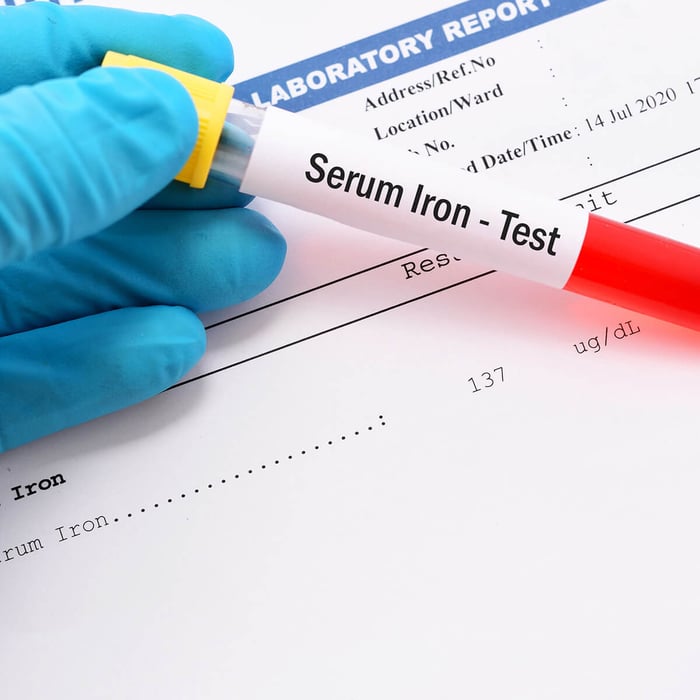
Iron Deficiency after Bariatric Surgery
May 6th, 2017
Lifestyle
Have you ever found yourself chewing cups of ice throughout the day? Many bariatric patients report this behavior after their bariatric surgery. While chewing ice does not necessarily mean you have low iron levels, it does warrant getting your iron levels checked. Iron's Role Iron is a key element in the metabolism of all living organisms and helps to make up hundreds of proteins and enzymes. Iron has many functions, but below are some of the key functions of iron. Heme is the iron-containing compound found in molecules. Hemoglobin and myoglobin are heme-containing proteins that help to transport and store oxygen. Hemoglobin is the primary protein in red blood cells and makes up two-thirds of the body's iron. It helps to transport oxygen from the lungs to the rest of the body. Myoglobin transports and stores oxygen (short-term) for muscle cells. This is extremely important when the muscles are working (such as in a physical activity session). Iron is involved in electron transport...
